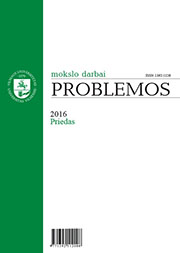Bergson’s “Intuition” in China and its Confucian Fate (1915-1923): Some Remarks on zhijue in Modern Chinese Philosophy
Bergson’s “Intuition” in China and its Confucian Fate (1915-1923): Some Remarks on zhijue in Modern Chinese Philosophy
Author(s): Joseph CiaudoSubject(s): Ethics / Practical Philosophy, East Asian Philosophy, Pre-WW I & WW I (1900 -1919), Interwar Period (1920 - 1939), Translation Studies
Published by: Vilniaus Universiteto Leidykla
Keywords: Bergson; intuition; translation; Confucianism; Buddhism;
Summary/Abstract: This paper investigates the translation of Henri Bergson’s philosophical writings in relation to the development of the concept of “intuition” (zhijue 直覺) in contemporary Chinese philosophy. As Bergson’s intuition was very soon associated with “the knowledge of/as virtue” (dexing zhi zhi 德性之知), it turned into one of the basic Chinese modern concepts to think about ethical and moral issues. However, Chinese philosophers used Bergson’s intuition as a device of moral philosophy sooner than the philosopher himself even started to write his moral philosophy. This paper decrypts the moralization of intuition in Chinese context, and questions the issue related to the formation of the concept of zhijue . The key documents put under light in this paper are Chinese translations of “An introduction to metaphysics” (1903) and several articles related to Bergson published around 1921.
Journal: Problemos
- Issue Year: 2016
- Issue No: Suppl.
- Page Range: 35-50
- Page Count: 16
- Language: English

